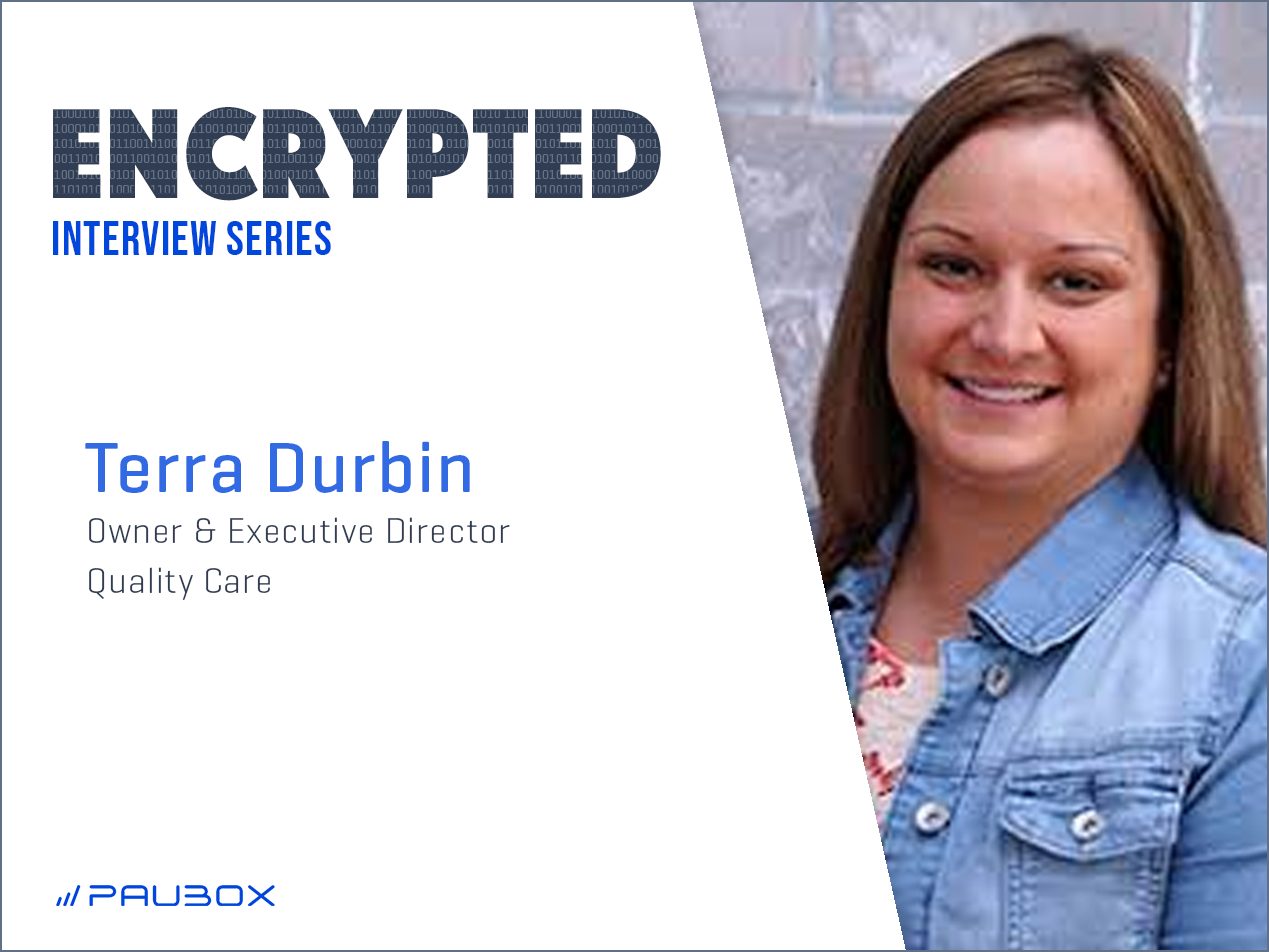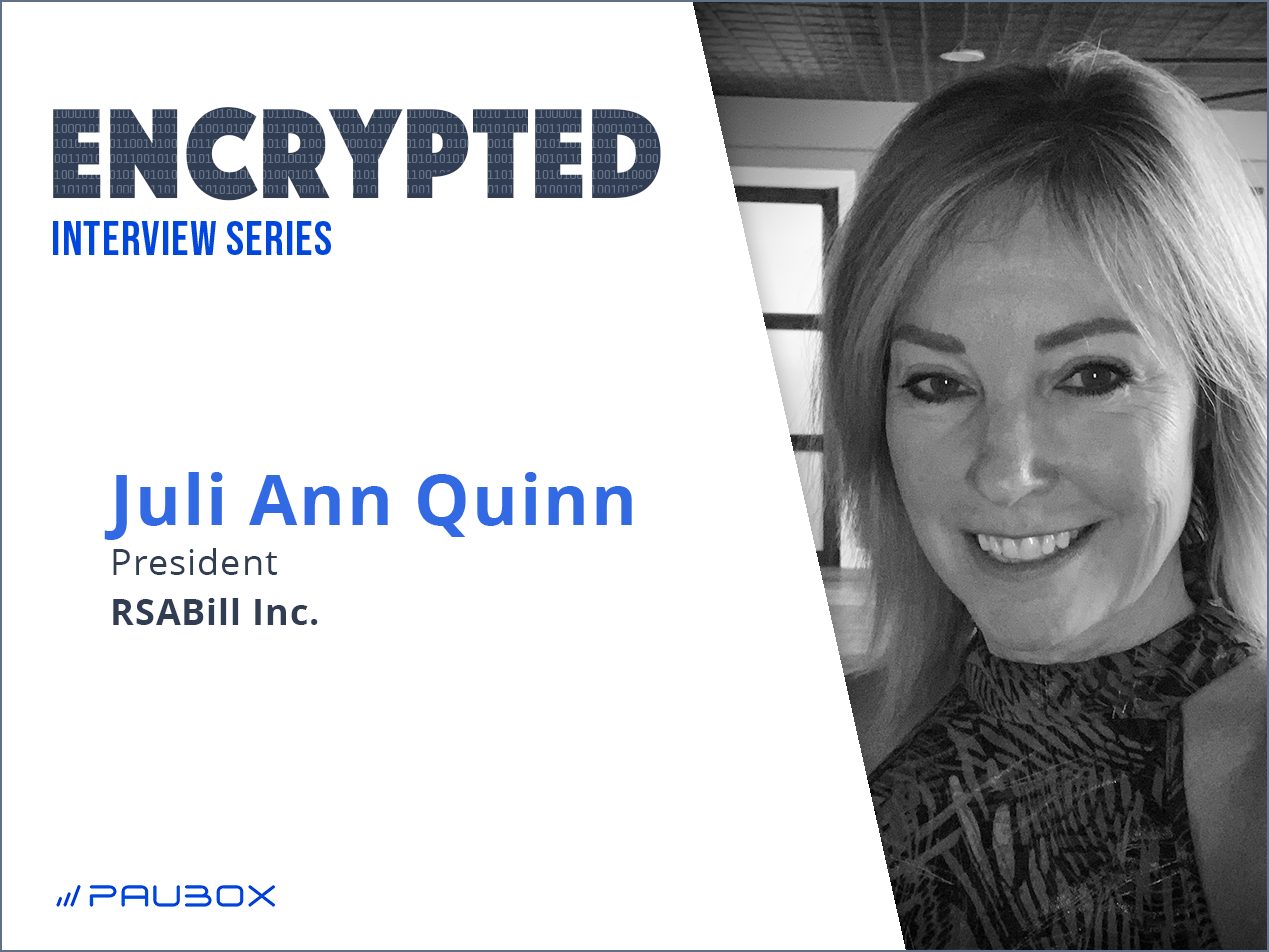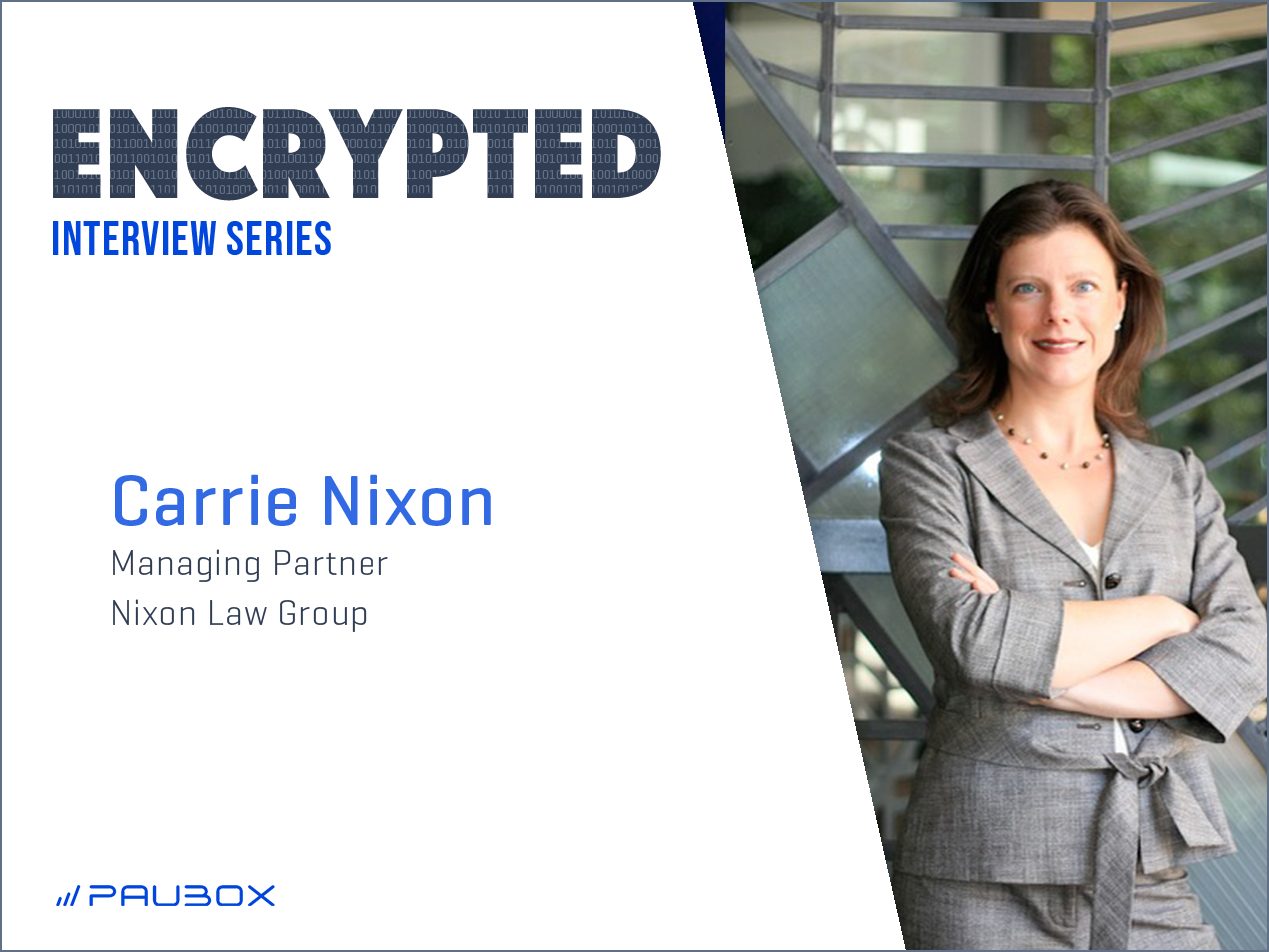8 min read
An interview with Terra Durbin: Delivering services during a pandemic
Rick Kuwahara June 12, 2020

The Paubox Encrypted Interview Series allows us to chat with leaders in healthcare IT, compliance and cybersecurity to pick their brains on trends and best practices. In this Encrypted Interview, we chat with Terra Durbin, owner and executive director of Quality Care , a social work agency based in Kentucky. Its mission is to provide high quality care by promoting respect, personal growth, and empowerment.
Starting Quality Care and being a female business owner
Rick Kuwahara: What led you to starting Quality Care?
Terra Durbin: I started Quality Care because I've worked in the field of intellectual and developmental disabilities for the majority of my career. I've worked in the field since I was 17 years old.
I had worked at other agencies and for other people, and I just was kind of in a place in my life where I felt like I wanted to work for myself.
And there were certain aspects from other agencies that I appreciated and believed in and then there were certain aspects that I didn't.
So I wanted to create an environment that was conducive for people to have a quality experience in both their employment as well as their services.
Rick: What's been the biggest challenge or mission you've had at Quality Care, since you started until now.
Terra: Yeah, that's a really good question. So it helps me in a few different ways.
I would say our current situation with the pandemic is probably one of the largest challenges that we've ever faced as a small business.
And, you know, along with that, I would say that another challenge is being a female owned agency. You would think that in 2020, females would have the same amount of respect as a male business owner. However, that's not necessarily always the case.
And I'm young as well, I'm only 36 and I was just 30 when I started the agency.
So being young along with being a female as well, it has been a challenge at times to be taken seriously and to also be respected by other people in the field.
To gain that respect as a female business owner has been a challenge at times.
Rick: So how did you approach you know, trying to overcome that?
Terra: For me, I think it's just keeping my feet on the ground and my face forward and just pushing through.
Really using that adversity to help me grow and kind of fuel my fire, I guess you could say.
I mean, I can't tell you how many times people have asked when my husband's going to be giving them a call to do an interview, or if I can speak with my husband to make that decision. I'm like, "Well, you'll be waiting a long time if you're waiting for that."
So I think it's just believing in myself and believing in my strengths and surrounding myself with a very strong, positive team and personal circle.
And also wanting to be a role model for my daughter. I have a 13 year old daughter, and I want to show her that the sky's the limit, and no matter what she wants to do, she can accomplish it. As long as she puts in the work.
Rick: What advice would you give other female business owners who are maybe facing these same challenges?
Terra: I would say keep your head on straight. Don't let the emotions of people's words drive your reactions.
And I'm a firm believer that it's not what happens to you, it's how you respond to what happens.
So I would say, stay strong. Believe in yourself. Make sure that you don't let those people win.
To the naysayers and the people who say, "Oh, you can't do that" or "just work for somebody else," prove them wrong.
And you can only prove them wrong by keeping yourself grounded and keeping your focus on your goal and just put one foot in front of the other and continue to work toward that.
Delivering services during a pandemic
Rick: So tell us a little bit about Quality Care, and your mission.
Terra: Quality Care, we serve individuals with intellectual and developmental disabilities through the Supports for Community Living Waiver, and the Home and Community based Waivers in Kentucky.
Our mission is to provide the highest level of care, with the highest level of quality. We feel like they go hand in hand. And it is my mission, my personal mission, that all of our individuals that we will treat them as if we would want someone to treat our own family.
So we deliver services to each of our individuals as if they were a member of our family. We provide different types of services, but all of our services are community based and range from physical therapy, occupational therapy, to case management and behavior modification, cognitive behavior support. So, we have kind of a strong array of services.
Rick: That's awesome. And in the news lately, of course, everything's around the coronavirus, this pandemic that we're all going through. So how has delivering services changed with that pandemic? How have you adjusted?
Terra: It's actually completely changed for us. I mean, all of our services have always been hands-on, face-to-face, direct social services. We're not able to do that anymore, they're limiting that completely for us, unless it's a health safety or welfare need.
So, we have completely switched to doing telehealth services. Which has been a challenge for us, because our individuals are used to seeing us face-to-face.
They're used to being able to look at us, and read our body language, and we're able to read their body language, and be able to put skills and interventions in place based on reading those body language cues. We're not able to do that anymore. So we are currently doing everything from home, from our computers, with Zoom, and email, and internet functions.
So we have gone from a hands-on service model, to a complete telehealth model. [chuckle] Overnight, pretty much.
Rick: Wow. So how has that been, kinda rolling that out, 'cause you're right, it's not just your team that has to deal with it, is these individuals and families that you're working with.
Terra: It depends on the person. Some individuals, some patents have been, it's kind of been seamless for them, and they're used to using computers and technology, so they've adjusted well.
However, even some staff and some patients have never used a video chat. Or hardly ever check their email, or have no idea, this is all very foreign to them. So it's a complete paradigm shift in the way that they function because they're having to learn all new technology and all new resources that they're not used to.
We live in a very rural area. Some people don't have internet, they don't have those resources. So it's been important for our staff and for me to give support to my staff and our patients, to be able to navigate through this complete unknown for them.
Rick: Right. And when we've talked to other people in other industries or areas in healthcare, as they've been forced to this telehealth move, they kinda see it as maybe being beneficial for them down the road. But like you mentioned, you're so hands-on in your services. I guess, how do you see telehealth going and helping you beyond the pandemic? Like, knock on wood, if everything gets back to normal later this year, do you see that this adjustment period that you've had to go through to implement telehealth and more virtual services could potentially benefit yourself and your industry?
Terra: I think that it definitely could benefit several of our individuals, in the fact that we support a lot of kids with behavior support services, and sometimes they respond better, we're finding, that sometimes a child responds with a longer attention span, and more tolerance to something on their iPad, a virtual interaction, than they do if you're sitting in front of them.
So we are finding that the technology component is a benefit when we're working with younger individuals, because they respond more to that than they do the face-to-face interaction. I do think that that will be something that will be positive that we can continue moving forward.
I also think that it allows us to reach people that we may not otherwise be able to reach, if we have snow or hazardous weather conditions, or that kind of thing, we can still provide services through telehealth. Whereas previously, we might have just canceled the session for that day. So definitely I think that it's something that we will be able to utilize in the future, more than we have in the past.
And it also frees up a lot of our time, because we're driving in between sessions, whereas with telehealth, we can hop off one Zoom call and on to the next. So it allows us to have more time to actually spend directly providing services without that time in between for transportation and such.
So, I do think that it will be something that we'll be able to use moving forward. It's just been an adjustment period for people to get used to it.
Rick: That's great. Speaking of kinda technology and where things are going, overall how do you kinda see your industry evolving in the next 10 to 15 years?
Terra: I think that a lot of the technology that we have put in place to be able to continue services, will continue to stick around after the Coronavirus and the pandemic is over. I do think that there will be more or telehealth services, and more Zoom calls, and things like that, to communicate.
I do think that that will continue and I think it is beneficial because it gives people immediate access to us. Even if it's by way of Skype, or Zoom, or however, that you're still able to access us immediately, and they don't have to wait for us to fit it in our schedule to come sit down with them face-to-face.
I think those aspects will continue and I think that's positive, that we'll be able to continue to increase our services and provide even higher quality services because we'll have additional avenues to provide those services that we didn't before. Or we just didn't utilize before.
Final Thoughts
Rick: How do you keep up with industry trends? Any good podcasts, blogs, influencers or newsletters that we should be following?Terra: I personally am involved with our state association for private providers. And so I attend all of their weekly update sessions as well as meetings and zoom calls and virtual meetings that they do.
I also do try to follow the local news and that kind of thing. I don't have any podcast that I follow, but I do try to keep track of industry trends as far as women in business and motivational things.
But our state association is probably the biggest avenue that I use to keep track of things that are changing in my specific field.
Rick: What do you do to de-stress and relax?
Terra: I love to travel when, when we were allowed to travel. And so right now, it's super stressful, I guess.
But traveling is kind of my thing. I'm really kind of buttoned up and some say I'm very vanilla. But I'm kind of ambitious and do sort of wild and crazy things, you know.
So that's something that people don't usually know about me unless they're in my inner circle.
But I'm one of those people that will jump off a 50 foot cliff into a body of water where I have no idea what's under me or zip lining. I'm always doing something adventurous.
So, to me that is kind of my way to destress and let out all of the pent up energy, I guess.
If I can't travel, then I do like to just kind of decompress with my family and you know, spend time with my daughter and my husband.
We like to ride motorcycles. So I try to kind of get on a motorcycle and just ride. I can't be on my phone. I can't be checking email and all that while I'm sitting on the back of a motorcycle, so it sort of forces me to relax and just be in the moment.
Rick: That's good. You always need to be able to unplug.
Terra: Absolutely. And that's, that's something that I'm not that great at, because we are on call 24 hours a day, seven days a week. So I always have my phone connected to me and you know, it's really difficult for me to unplug but I do try to take time for myself as much as I can.
Subscribe to Paubox Weekly
Every Friday we'll bring you the most important news from Paubox. Our aim is to make you smarter, faster.





